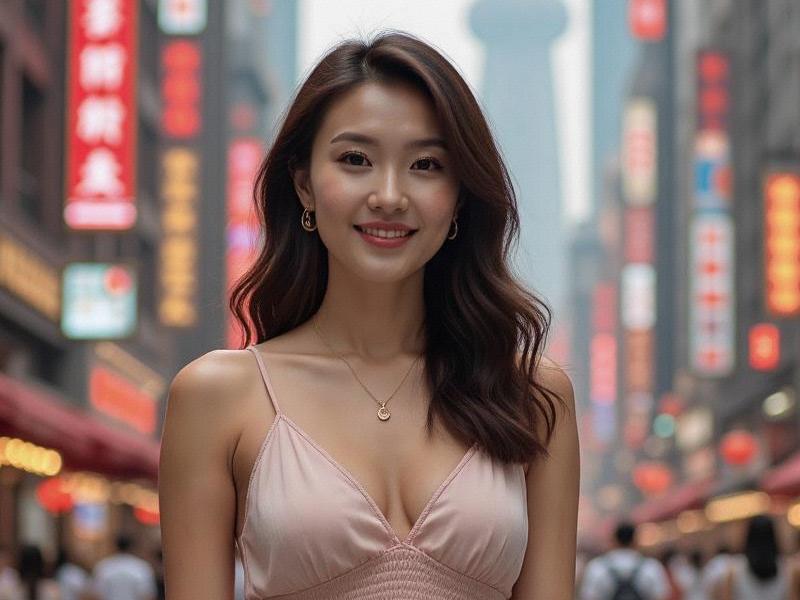An in-depth exploration of how Shanghai's modern women balance traditional beauty ideals with contemporary career ambitions, creating a unique urban feminine identity that influences China's cultural landscape.

The neon-lit streets of Shanghai don't just reflect the city's economic might - they illuminate a remarkable social phenomenon: the rise of the Shanghai modern woman. More than just pretty faces, these women represent a fascinating fusion of Eastern aesthetics and Western ambition that makes Shanghainese women stand out in China's cultural panorama.
Walking through Xintiandi or the Bund, one immediately notices the Shanghai woman's distinctive style - neither completely Western nor traditionally Chinese. Tailored qipao dresses paired with Christian Louboutin heels, delicate jade bracelets contrasting with Apple Watches, this is the sartorial language of women who've mastered cultural code-switching. Local fashion designer Zhang Wei observes: "Shanghai girls treat their outfits like diplomatic negotiations - every element carefully chosen to convey multiple messages about heritage and modernity."
阿拉爱上海 But the true revolution goes deeper than fashion. Unlike the "plastic beauty" stereotype often associated with Asian women, Shanghainese professionals have pioneered what sociologists call "the triple excellence" - academic achievement, career success, and cultural literacy. At prestigious firms like Pudong's financial centers, women hold 43% of executive positions (compared to China's average of 28%). Yet they still dominate traditional "feminine" domains - Shanghai's cooking schools report 68% female enrollment, and local literature festivals attract predominantly female audiences.
The pressure to excel is immense. Many Shanghai women maintain brutal schedules: investment banker Li Jiaqi (29) describes her typical day: "Yoga at 6AM, work till 8PM, calligraphy class twice weekly, plus weekend volunteering at the children's hospital." This exhausting regimen reflects what psychologist Dr. Wang calls "the perfection paradox" - the struggle to satisfy both Confucian expectations of feminine virtue and capitalist demands for professional achievement.
上海贵人论坛
Beauty rituals reveal similar contradictions. While Shanghai leads China in cosmetic surgery (with procedures increasing 17% annually), there's growing demand for guofeng (national style) makeup tutorials that emphasize natural looks. The bestselling "Shanghai Glow" skincare method combines French pharmacy products with Traditional Chinese Medicine principles. "We want to look polished, not artificial," explains popular beauty vlogger XiaoMei.
上海贵族宝贝sh1314 The relationship dynamics also showcase this cultural duality. Shanghai's marriage market sees highly educated women rejecting the "leftover woman" stigma, with many choosing singlehood over unsatisfactory unions. Yet traditional values persist - matchmaking agencies report that 72% of female clients still list "filial piety" as essential in partners.
This generation of Shanghai women are rewriting the rules while honoring their roots. As the city positions itself as a global capital, its women embody this transition - their Hermès bags may contain both a business contract and homemade mooncakes. In doing so, they've created a new feminine ideal that's distinctly Shanghainese: ambitious yet graceful, global yet local, strong yet subtly charming. The future of Chinese femininity isn't being written in Beijing's political halls or Guangzhou's factories - it's being walked daily in stilettos across Shanghai's gleaming streets.